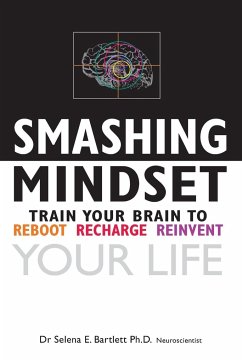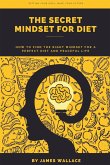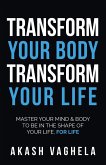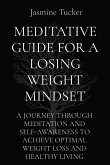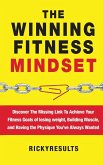You can beat the genetic lottery. No matter who you are, where you were born, or how you grew up, you have one thing in common with everyone else: You started life with a ticket in the genetic lottery. Some people definitely hold winning tickets: born into the arms of two loving, stable parents, in a safe country, with no worries about food or shelter or access to a good education. Many others, of course, start life in a far less promising way - carrying the genes of unstable, unhealthy, or unloving parents, born into a world of poverty, prejudice, lack of opportunity. For many, this random beginning becomes the middle and end of their life story as well. And yes, our genes, our environment, and our experiences do shape who we are - but they don't have to define who we become. Picture rolling a rock down a hill. It will keep going until something stops it, right? That's your mindset: your habitual, unconscious ways of living and thinking. Like that rock, your mindset keeps you eating too much, or believing you're unworthy of love, or dwelling on past pain, until something causes it to change. Or rather, until something causes you to change your mindset. You might believe that you can alter the effects of your environment but are stuck with your genes, and in one sense, you're right. You'll always have those brown eyes or that curly hair. But just as you can use colored contacts or straighten your hair, you can overcome your family's predilection for, say, addictive behavior or gaining weight. You can replace the things that are holding you back with things that will move you forward. How? You have the power to change your mindset: to let go of past ways of being and thinking and to shape your future. Think of people who were born into deprivation and yet succeeded in creating rich, healthy lives for themselves and their children. Think of people who overcame bad habits and lost weight or cut back on their drinking or got out there and got a better job. People we admire as resilient or strong simply have a drive or a mindset to succeed. You can develop one, too. We can't change our ticket in the genetic lottery, but we can control what we do about it. It takes daily work and practice, but it gets easier. Consider this book a roadmap-a user's manual for taking charge of your life. Learn how your brain works; how to recognize the patterns that keep it locked up, repeating the past; and how to apply simple strategies to change it. It's never too late to change your future by smashing your mindset. Stress has a way of leaving its imprint on our brains and bodies. We know that, in a learned, habitual, unthinking reaction to stress, it is the emotional part of the brain-what I've called MiGGi-that's encouraging us to eat all those cookies or the rest of the bag of chips, or drink or smoke or do whatever we've found makes us feel better, at least in the short term. MiGGi locks us into unhelpful memories and feelings, too, such as the pain of betrayal or divorce. The brain is a wonderful thing, though. By applying the principles of neuroplasticity, we can change the way our brains work. Remember, if this were easy, everyone would be fit, trim, happy, and loving, and the world would be a peaceful place. We can start by drawing a line in the sand, crossing over it, and not looking back. This is why it is so important to understand how your brain works to get a smashing mindset.
Hinweis: Dieser Artikel kann nur an eine deutsche Lieferadresse ausgeliefert werden.
Hinweis: Dieser Artikel kann nur an eine deutsche Lieferadresse ausgeliefert werden.

